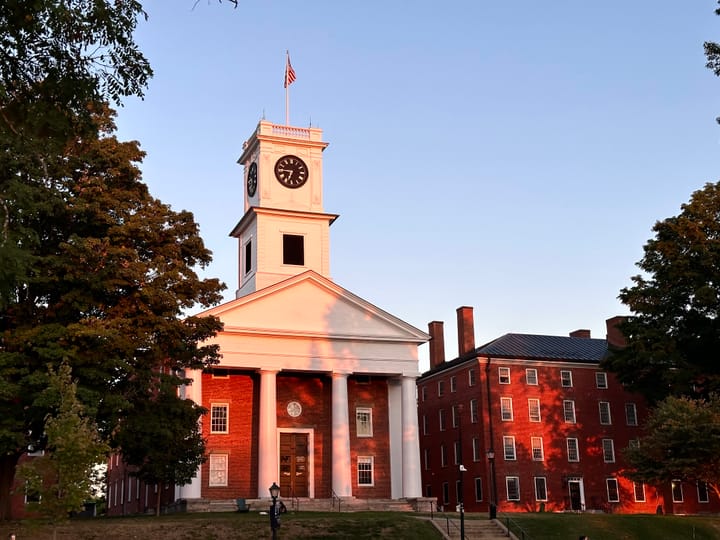Alumni to lose email addresses
“Email forwarding is what a lot of schools are doing now,” said Margaret Stancer, director of desktop computing services for the College. “As more and more people did email after they left school, it became more difficult to maintain [the system].”
In the letter sent from both Fitz and Betsy Cannon Smith ’84, who is the executive director of alumni and parent programs, seniors were informed that they can continue using either the VAX system or the new NT system until September of 2001. At that point they will lose their current email address and have the option of signing up for a forwarding address through the Office of Alumni and Parent Programs.
Some seniors have expressed concern over losing their accounts.
“I believe that it’s an unfortunate but necessary change. I resent that we won’t be able to keep our accounts, but I understand that it wouldn’t be fair for future students if we prevent them from using their names,” said Jesse Engelberg ’01. “I do believe, however, that we should be allowed to store email at our alumni accounts, and it should be more than a forwarding service.”
“This is the crappiest solution ever,” said Owen Muir ’01. “For $30,000 a year, I should get to have an email [account] forever.”
The forwarding address, which is provided free of cost for life, will consist of the student’s first initial, middle intial, last name and class number, followed by “@alumni. amherst.edu.” For example, John A. Doe ’01 would receive jadoe01 @alumni.amherst.edu as his email address.
“If I wanted to email someone whom I hadn’t spoken to in a few years, and only knew their old Amherst email address, it would be difficult for me to reach that person,” said Peter Beardsley ’01.
“We sort of had a policy to keep accounts for one year, and then they would be deleted,” said Stancer of the current system, which allows alumni to keep the address they used while at Amherst indefinitely. “The intent was never to keep email accounts. The more accounts you have, the more name conflicts you have.”
“It appears to be a change,” Stancer added, “but, in philosophy, it’s not really a change.”
Students will not be able to switch to the new service until May 29, at which time they will receive a username and password for the alumni website.
“I wish [seniors] had learned about it sooner,” said Steve Ruckman ’01. “In principle, I see why they’re doing it. It would’ve been helpful to have the seniors involved in the discussion.”
Current alumni of the College will be able to sign up for the forwarding service as well when they lose access to their current Amherst email addresses in September.
One of the features of the new email program is a global address book which allows users to type in any student or staff member’s first name and last name and the email server will search the database for their email address.
“You don’t have to know middle initials,” said Stancer.
The College switched from VAX to a NT-based email server at the beginning of the semester and has been trying to get students to switch their accounts over. Currently, network services is offering 10 AC dollars every week to a randomly selected student who has switched over in the past week as an incentive to expedite the change-over.
The new NT server also allows email to stay on the server instead of downloading it onto a local computer. This will allow Outlook users to access their email from multiple stations.
Also, the College recently announced that it will be increasing its Internet bandwidth from 3 megabits per second to ten megabits per second. The increased bandwidth is the result of a contract the College signed with Verizon. The information technology (IT) department will examine whether or not to implement an “acceptable use” policy for all students at its next meeting.





Comments ()